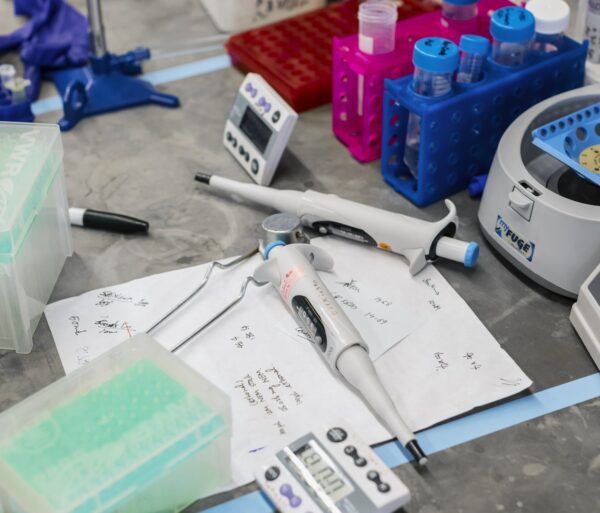
We were taught that changes in genes take place over many generations and through years of natural selection. Would you be surprised to learn that our environment and the choices we make in life today can influence our genetic code and have a profound effect on our health and the health of our children in the near future?
The field of epigenetics is illustrating how quickly functions of one’s genetic code can be altered through environmental changes. Epigenetics refers to changes in gene expression or phenotype (appearance) that do not change the underlying deoxyribonucleic acid (DNA; the chemical substance of genes) sequence. In recent years, researchers have identified various chemical modifications to DNA and to histones (proteins that associate tightly with DNA) that can determine when or even if a given gene is expressed.
Dr. Chunyu Liu studies one of those chemical modifications— DNA methylation. DNA methylation involves the addition of a methyl group to DNA and is essential for normal development and cellular differentiation in higher organisms. DNA methylation can be altered by environment. More specifically, it can be altered by factors like diet, radiation and drugs. Abnormal DNA methylation has been associated with diseases such as cancer and diabetes as well as multiple sclerosis, schizophrenia and other neuropsychiatric disorders. Studies have suggested that DNA methylation could be a heritable quantitative trait. However, the regulation mechanism of DNA methylation of specific genes, especially in the brain, is still largely a mystery. Like all other quantitative traits, genetic regulation factors that affect traits can be mapped by genetic methods. Dr. Liu uses genetic methods to map regulatory elements of DNA methylation in the human brain.
Liu’s lab compared brain samples from people afflicted with schizophrenia, bipolar disorder, major depression, and healthy controls. With the funding from a BRF Seed Grant, Liu’s lab became the first group to identify that both regional and distant genomic variations could affect the methylation level of a specific DNA sequence in the brain. The study showed a convincing evidence of genetic factors of epigenetic traits. Environmental factors and genetic factors underlying human phenotypes and diseases found their shared spaces. Now, Liu is working on a study that will investigate DNA methylation and gene expression differences among the same groups— individuals with schizophrenia, bipolar disorder, major depression and healthy controls. The results of these studies will help scientists better understand the mechanisms of DNA methylation and regulation of gene expression as well as the biological basis of disease, particularly neuropsychiatric diseases.



